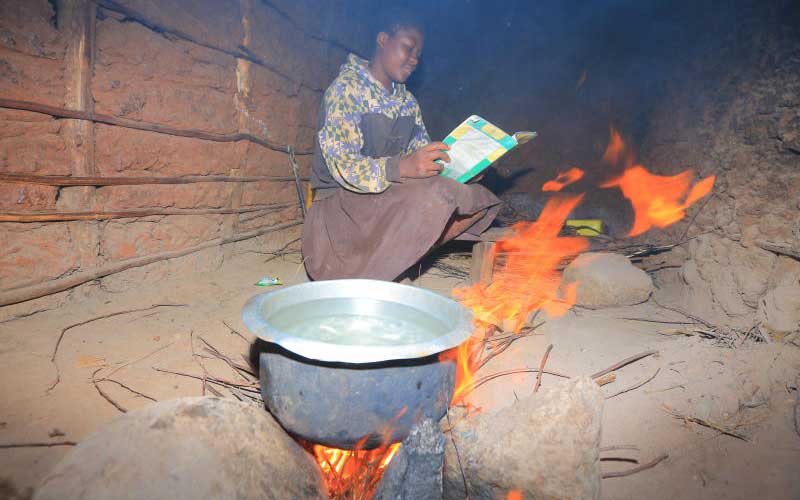×
The Standard e-Paper
Home To Bold Columnists

Winny Bosibori, a Standard Seven pupil at Kionganyo Primary School in Kisii County, goes through her notes as she prepares lunch. The Covid-19 pandemic has disrupted the school calender and most students learn on their own. [Sammy Omingo, Standard]
A report has poked holes in the ongoing home online learning programme saying it cannot impact syllabus coverage.